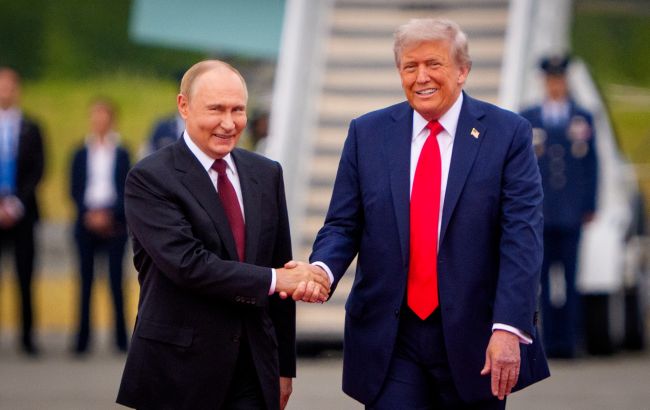The global landscape of wealth has reached unprecedented heights, with the world’s wealthiest people commanding fortunes that shape economies, influence business decisions, and drive technological innovation. The 2025 Forbes billionaires list reveals a record-breaking concentration of wealth, featuring more billionaires than ever before and showcasing how business empires continue to generate extraordinary riches in our interconnected global economy.
The Scale of Global Wealth Concentration
Record-Breaking Billionaire Population
The latest Forbes data reveals that there are now 3,028 billionaires worldwide, representing the highest number ever recorded since the ranking began in 1987. These wealthiest people collectively hold approximately $16.1 trillion in wealth, demonstrating an unprecedented concentration of riches among a relatively small group of individuals.
This represents an increase of 247 members and $1.9 trillion compared to 2024, showing how business success and market conditions continue to create new pathways to extreme wealth. The global billionaire population has grown by 8% in 2025, indicating that wealth creation opportunities remain robust despite economic uncertainties.
The Trillion-Dollar Club
For the first time in history, a record 15 people worldwide now possess 12-figure fortunes, up from zero in 2017. This exclusive group of the wealthiest people demonstrates how modern business models, particularly in technology and innovation sectors, can generate unprecedented levels of wealth within relatively short timeframes.
The World’s Wealthiest Individual: Elon Musk
Unprecedented Wealth Accumulation
Elon Musk continues to reign as the world’s wealthiest person, with his net worth reaching an estimated $342-407.9 billion according to various Forbes measurements. His wealth has grown by an astounding 75% in recent years, driven by significant valuations of his diverse business portfolio including Tesla, SpaceX, and xAI.
Musk’s achievement as the first person to reach the $300 billion mark represents a milestone in global wealth accumulation. His business empire spans electric vehicles, space exploration, artificial intelligence, and government efficiency initiatives, demonstrating how diversified business strategies can generate extraordinary riches.
Revolutionary Business Model
Musk’s approach to wealth creation through revolutionary business ventures has redefined what’s possible in terms of individual fortune building. His companies have disrupted traditional industries while creating entirely new markets, from electric vehicles to commercial space travel and neural interfaces.
The Technology Titans
Meta’s Mark Zuckerberg
Mark Zuckerberg holds the second position among the wealthiest people with a net worth of approximately $216-260.3 billion. His wealth stems primarily from his stake in Meta (formerly Facebook), which continues to dominate social media and is aggressively investing in artificial intelligence and metaverse technologies.
Zuckerberg’s business strategy focuses on connecting people globally while building the infrastructure for future digital interactions. His commitment to AI development and virtual reality represents a significant bet on the future of digital business models.
Amazon’s Jeff Bezos
Jeff Bezos, founder of Amazon, maintains his position among the top wealthiest people with an estimated net worth of $208.7-229.8 billion. His wealth primarily derives from his Amazon holdings, though he owns less than 10% of the company he founded.
Bezos’s business legacy extends beyond e-commerce into cloud computing, space exploration through Blue Origin, and media ownership of The Washington Post. His diversified approach to wealth building demonstrates how successful entrepreneurs expand their business interests across multiple sectors.
The Oracle Empire: Larry Ellison
Database Dominance
Larry Ellison, co-founder and former CEO of Oracle, represents one of the most impressive climbs among the wealthiest people, with a fortune estimated at $177.6-282.2 billion. His wealth primarily comes from owning approximately 40% of Oracle, the software company that powers much of corporate America through cloud computing and database platforms.
Ellison’s business success demonstrates how less glamorous but essential technology infrastructure can generate enormous wealth. Oracle’s enterprise software solutions form the backbone of countless businesses worldwide, creating sustained value and riches for its founder.
Investment Legend: Warren Buffett
The Oracle of Omaha
Warren Buffett remains one of the wealthiest people globally, with his fortune estimated at approximately $154 billion. His wealth has grown by $2.4 billion recently, driven by strong performance from Berkshire Hathaway shares and strategic investments across key sectors including insurance, energy, and rail transport.
Buffett’s approach to wealth creation through long-term value investing has made him a role model for generations of investors. His business philosophy emphasizes buying undervalued companies and holding them for extended periods, creating substantial riches through patient capital allocation.
Fashion and Luxury: Bernard Arnault
LVMH Empire
Bernard Arnault, CEO of LVMH and France’s richest person, represents wealth creation through luxury goods and fashion. His fortune fluctuates with market conditions affecting luxury brands like Louis Vuitton, Dior, and Moët & Chandon, which remain industry leaders despite economic uncertainties.
Arnault’s business strategy focuses on acquiring and developing premium brands that command pricing power and maintain exclusivity. His approach to wealth building demonstrates how luxury markets can generate substantial riches for those who understand consumer psychology and brand value.
The Retail Dynasty: Walton Family
Walmart Legacy
Alice Walton, daughter of Walmart founder Sam Walton, stands as the world’s wealthiest woman with a fortune of approximately $101-107 billion. Her wealth stems from her inheritance of the Walmart empire, demonstrating how successful business models can create generational riches.
Unlike her brothers, Alice Walton has focused on art curation and philanthropy rather than direct business operations, opening the Crystal Bridges Museum of American Art. Her approach shows how wealthy individuals can leverage their riches for cultural and social impact.
Industry Distribution of Wealth
Technology Dominance
Technology claims 401 billionaires in 2025, representing nearly 14% of the global total and showing an increase of 59 individuals since last year. The sector’s recovery from 2022-2023 challenges has been driven by AI productivity tools, cloud demand, and semiconductor innovations.
Technology businesses continue to generate wealth at unprecedented rates due to their scalability, global reach, and ability to create new markets. The sector’s dominance among the wealthiest people reflects how digital transformation drives modern wealth creation.
Finance and Investment
With 464 billionaires, finance and investments retains its position as the dominant billionaire factory, representing 15.3% of 2025’s total. The sector added 37 new names year-over-year, propelled by strong equity markets, record private-equity exits, and hedge-fund performance resurgence.
Geographic Distribution of Wealth
United States Leadership
The United States leads globally with a record 902 billionaires, followed by China with 450 billionaires, and India with 205. This distribution reflects the strength of American business ecosystems, capital markets, and entrepreneurial culture in creating wealth.
American businesses benefit from robust financial markets, supportive regulatory environments for innovation, and access to global capital that enables rapid scaling of successful ventures.
Emerging Market Growth
The growth of billionaires in emerging markets like India and other developing economies demonstrates how global business opportunities are expanding beyond traditional wealthy nations. These new wealthy individuals often build their fortunes through domestic market development and international expansion.
Wealth Creation Strategies
Self-Made Success
According to Forbes, 67% of billionaires are “self-made,” meaning they founded or co-founded their companies or established their own fortunes instead of inheriting them. This statistic highlights how business innovation and entrepreneurship remain primary pathways to extreme wealth.
The youngest self-made billionaire is Scale AI cofounder and CEO Alexandr Wang, worth $2 billion at age 28, demonstrating how technological innovation can create wealth at unprecedented speeds.
Diversification Strategies
The wealthiest people typically diversify their holdings across multiple businesses, asset classes, and geographic regions. This approach helps preserve wealth while creating opportunities for continued growth through various economic cycles.
The Future of Global Wealth
Technological Innovation
Artificial intelligence, biotechnology, renewable energy, and space exploration represent emerging frontiers for wealth creation. The wealthiest people are increasingly investing in these sectors, recognizing their potential for generating future riches.
Philanthropic Impact
Many of the world’s wealthiest people are committed to philanthropy, using their riches to address global challenges including climate change, poverty, and disease. This trend demonstrates how extreme wealth can be leveraged for positive social impact.
Challenges and Responsibilities
Public Scrutiny
The concentration of wealth among a small number of individuals has generated public debate about inequality, taxation, and the responsibilities of the wealthy. Billionaires face increasing scrutiny regarding their business practices and social contributions.
Economic Influence
The wealthiest people wield significant influence over global markets, political systems, and social movements. Their business decisions can affect millions of people and shape entire industries, highlighting the importance of responsible leadership.
Investment and Market Impact
Market Influence
The investment decisions of the wealthiest people can significantly impact financial markets, startup ecosystems, and emerging technologies. Their capital allocation choices often determine which innovations receive funding and development resources.
Economic Multiplier Effects
Businesses owned by the wealthiest people employ millions of workers globally and generate trillions in economic activity. Their success creates jobs, drives innovation, and contributes to economic growth in countries worldwide.
Conclusion: The Evolution of Global Wealth
The wealthiest people in the world represent the pinnacle of business success and wealth creation in our modern economy. Their fortunes, built through innovation, strategic thinking, and calculated risk-taking, demonstrate the potential for extraordinary wealth accumulation in today’s interconnected global marketplace.
As business models continue evolving with technological advancement and changing consumer preferences, new opportunities for wealth creation emerge while existing fortunes face both challenges and growth prospects. The stories of today’s wealthiest people provide insights into successful business strategies while highlighting the responsibilities that come with extraordinary riches.
The future will likely see continued growth in global wealth concentration, driven by technological innovation, emerging market development, and new business models that can scale rapidly across international markets. Understanding how the wealthiest people build and maintain their fortunes offers valuable lessons for entrepreneurs, investors, and business leaders seeking to create their own paths to financial success.












